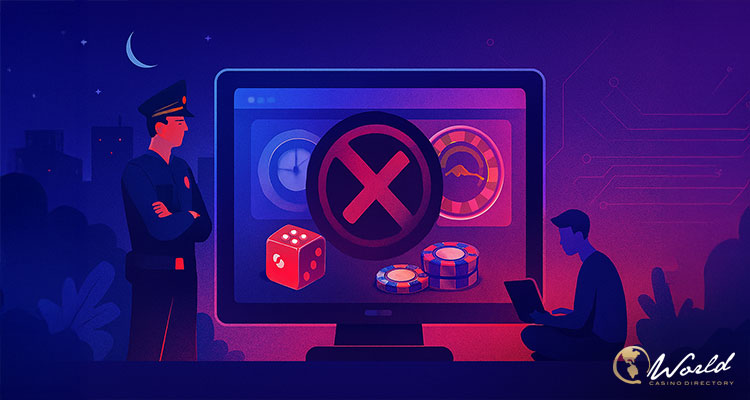The Philippines has reported a dramatic 93% reduction in illegal online gambling activity during the third quarter of 2025, marking one of the most significant drops since the government began tightening its crackdown on unlicensed operators.
Data from cybersecurity and analytics companies Gogolook and Whoscall revealed that reports of illegal gambling links and operations fell sharply between July and September, a result attributed to strengthened collaboration between public and private institutions.
Coordinated Action Drives Crackdown Success
Cybercrime Investigation and Coordinating Center (CICC) Acting Executive Director Aboy Paraiso said the success reflects a coordinated, multi-agency effort involving legislators, regulators, and law enforcement. “Foreigners are afraid of investing on online gambling because our regulations are strict,” Paraiso stated in an interview on PTV’s Bagong Pilipinas Ngayon, as reported by Philippine News Agency.
He credited key institutions such as the Philippine Amusement and Gaming Corporation (PAGCOR), the Philippine Charity Sweepstakes Office (PCSO), the Philippine National Police Anti-Cybercrime Group (PNP-ACG), the National Bureau of Investigation (NBI), and the Presidential Anti-Organized Crime Commission (PAOCC).
Gogolook, which developed the Whoscall caller identification and scam detection app, reported that complaints and alerts related to illegal gambling calls or websites have steadily declined. “Hopefully, we can maintain the momentum and, again, tuluy-tuloy naman iyong ginagawa natin,” Paraiso said, emphasizing the need for sustained cooperation.
In a separate interview with ABS-CBN, Paraiso added that about 10,000 gambling-related websites had been taken down in 2025. “Nagkaroon po ng collaborative effort… the whole government approach to this,” he explained, calling it a testament to what can be achieved through unified enforcement.
Expanding Cybercrime Preparedness
Despite the positive results, authorities continue to face challenges from other cyber threats. Gogolook’s data showed a 78% rise in scam calls between July and September, signaling that while illegal gambling activities are being contained, other online risks persist.
To bolster digital defenses, the CICC announced an agreement with Camp John Hay in Baguio City to establish a digital forensics training center. The facility will train analysts and cybercrime investigators from the PNP-ACG, NBI Cybercrime Group, and possibly the Department of Justice’s Office of Cybercrime (DOJ-OOC).
The Philippine government’s broader anti-cybercrime strategy has gained momentum since President Ferdinand Marcos Jr. ordered intensified digital enforcement in 2024, following over 21,000 cybercrime incidents the previous year.
Information and Communications Technology Secretary Henry Rhoel Aguda confirmed that the Department of Information and Communications Technology (DICT) is also working with telecom companies to modernize payment systems, especially in retail outlets still using outdated 2G and 3G networks. This initiative aims to minimize vulnerabilities ahead of the holiday season, a period when cybercrimes typically surge.
Paraiso reiterated that maintaining the country’s progress requires continued vigilance. “We hope to sustain this momentum through continued coordination with other government agencies,” he said.


